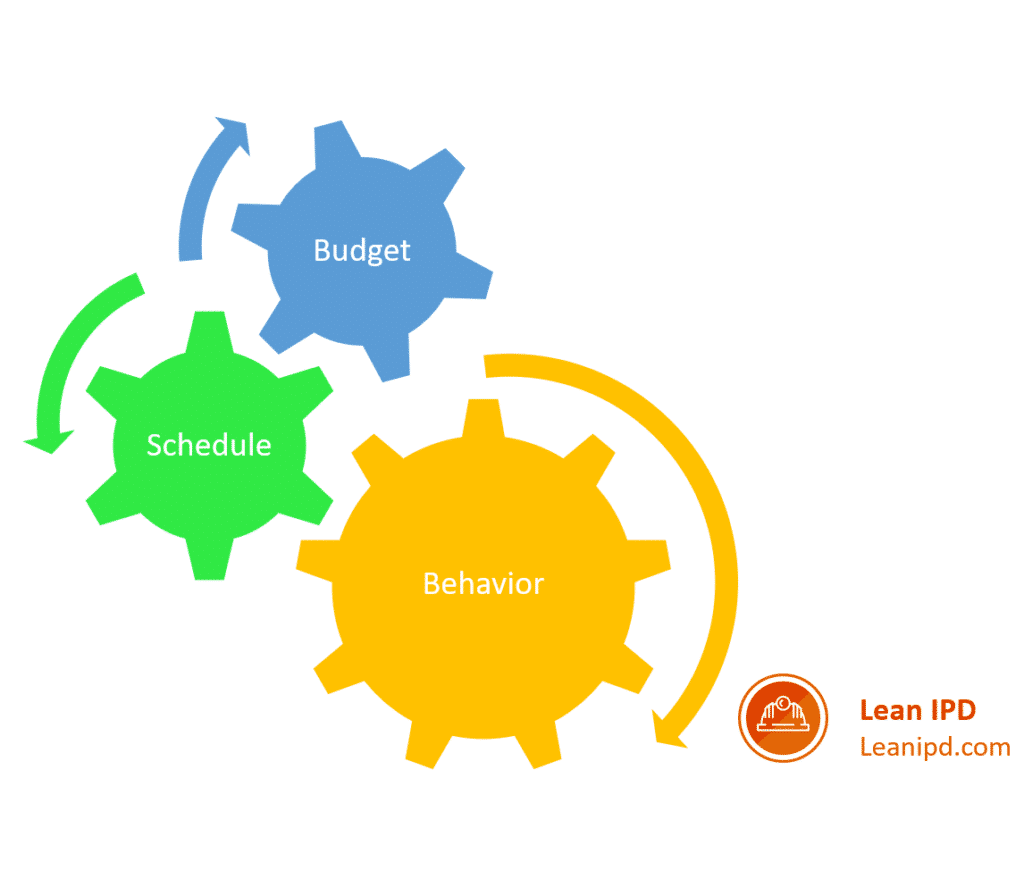Yet Usually Ignores.
Project Managers for any type of project (construction, IT, new business service line, etc.) think they have control over many aspects of the project. Schedule, scope, budget, and plan all come to mind.
Where PMs don't actually have control, they seek to invent it through various tools such as meeting minutes and documentation, so they always have at their fingertips a "so and so told me on this date" which creates the illusion of control.
Usually what makes a good PM at first is a Type-A personality, one that seeks to check the box, document decisions, drive action, and deliver. When a project gets tough, this personality seeks more control by tightening their grip on the issues and people, often at the expense of the people involved in the project.
These mechanisms are reactions to the single aspect a PM truly can control - the expectations of behavior within the project team.
How people behave, interact, treat each other, engage, and work together when the PM is not around is the project culture – all set by behavior expectations.
Too often a project is created, the group is pulled together (not a team yet, just a group of people), and it's off to the races (hurry up! we have to do something tangible to show progress!). This results in an accidental project culture, where personalities of people and the groups they represent are the primary contributors to the accidental project culture.
This gambling can pay off on projects, and it also can destroy projects. If you have enough strong personalities that are seeking the right things, you may get lucky and have a good project culture.
If, and this is more likely, the drivers are purely statistics such as time and budget, strong personalities will allow excuses for bad behavior and poor treatment of people. Especially when the project team gets stressed the first time – then the “real” people show up, with all their learned behaviors of how to act, behave, and “solve the problem.”
Just look at any longer project – the project usually started off in a positive light, and many of the true undercurrents never saw the light of day. In fact, the team floated along in artificial harmony for many weeks or months or even years, never learning how to engage in real conflict, instead choosing to avoid it and instead behave like “professionals” and “respectfully challenge.” Then adversity hits and BAM – all those undercurrents, badly learned habits, and control take over. Many of us have been there – that moment when the project goes from fun to “the PM is just barking orders – I’m out.”
The question is - can you avoid gambling by focusing intentionally on the project team culture?
When a PM takes ownership of the culture he or she creates, amazing things will happen. Think about a PM who stands up and thoughtfully leads the project team through defining the project team behaviors. How will we treat each other? How will we measure ourselves and our culture? How will we develop an environment that allows us to call each other out when we are deviating from our desired relationships with each other?
When you take the time and devote effort to talking thru and collaboratively defining the culture the project team wants to embrace, you are setting the tone for the entire project.
You are putting people first, and the project second. When a PM puts the project over the team, the project will be delivered at the expense of the team. When a PM puts the team over the project, the project will benefit tenfold.
Control in project management is an illusion. Control over intentional project team culture - how a group of people interact, behave, and treat each other - is the only true control PMs have.
Kyle presented this content in a webinar on June 27th, 2018. A Recording of the webinar along with the slides is available here.
Kyle Majchrowski is a Senior Project Executive with Banner Health who supports the team that manages renovations and new construction throughout the Western Division. He is also a founding member of Seek Change, a non-profit group which organizes built environment events focused on improving people’s experiences. His teams continue to improve the project delivery experience, implementing collaborative efforts.
Kyle focuses on building a strong culture of trust and vulnerability in order to deliver successful projects. Driven to substantially impact workplace engagement, his group explores new opportunities in delivery means, methods, and relationships.
Kyle has a unique perspective which combines experience as a subcontractor, contractor, developer, and institutional owner as well as time within technology firms focused on the construction industry. Combining degrees in Construction Management and Industrial Technology, he channels his passion for delivering the best cultural environment for his teams to succeed.



